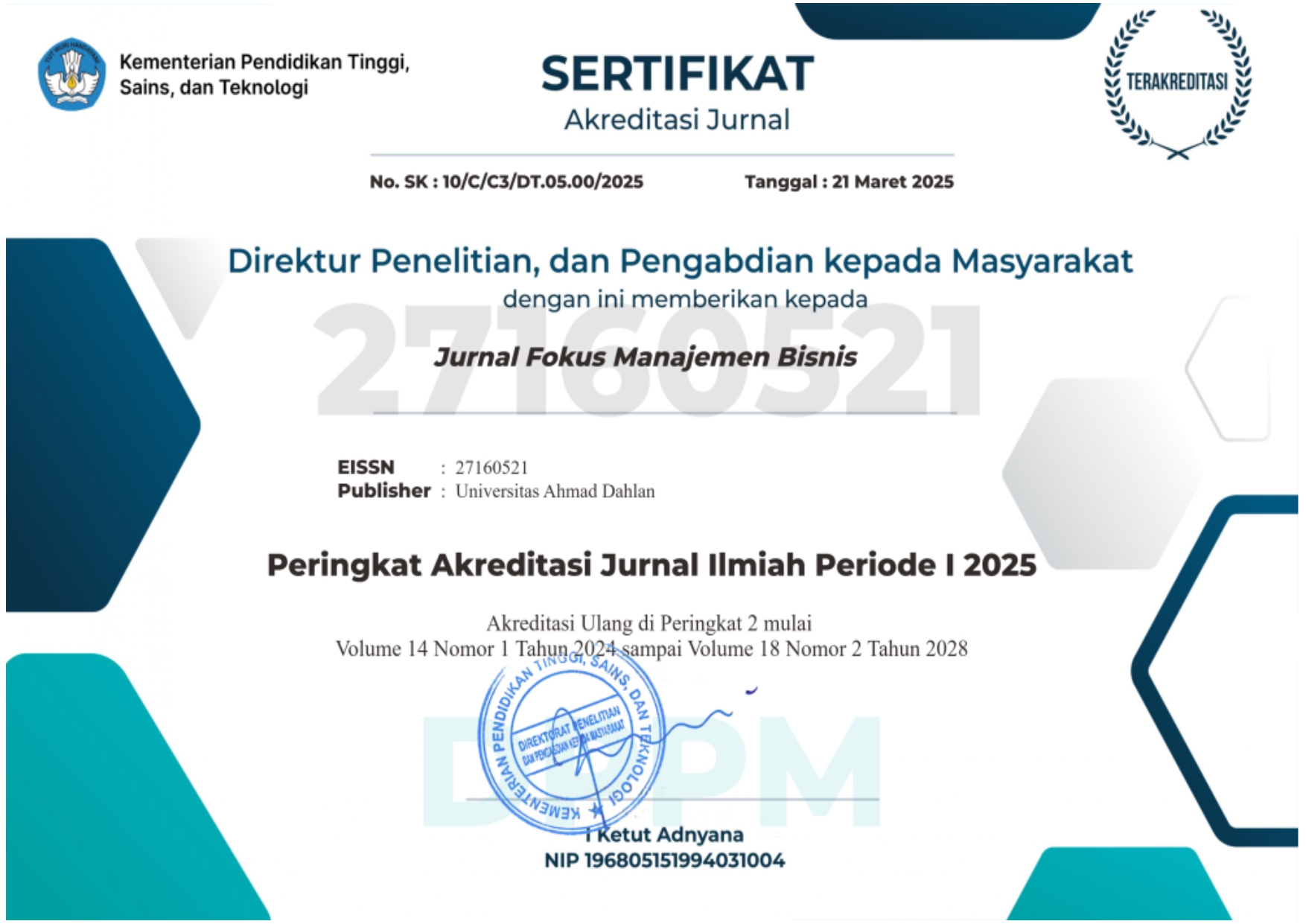PENGARUH BUDAYA ORGANISASI, KOMUNIKASI DAN LINGKUNGAN KERJA TERHADAP KEPUASAAN KERJA KARYAWAN UNIVERSITAS AHMAD DAHLAN YOGYAKARTA
DOI:
https://doi.org/10.12928/fokus.v8i1.1586Keywords:
Organizational Culture, Communication, Work Environment, Work SatisfactionAbstract
This study aims to determine the effect of organizational culture, communication and work environment on job satisfaction of Ahmad Dahlan University employees. In this study the population used was faculty administration employees who have an accreditation study program totaling 65 people. The sample used was 65 respondents using the saturated sampling method. The analysis technique used is multiple regression analysis. Hypothesis testing using t test shows that organizational culture has no effect on employee job satisfaction while communication and work environment influence on job satisfaction. Then through the F test shows that organizational culture, communication and work environment simultaneously affect job satisfaction.Downloads
Published
2020-01-20
How to Cite
Sari, T. S., & Bidayati, U. (2020). PENGARUH BUDAYA ORGANISASI, KOMUNIKASI DAN LINGKUNGAN KERJA TERHADAP KEPUASAAN KERJA KARYAWAN UNIVERSITAS AHMAD DAHLAN YOGYAKARTA. Jurnal Fokus Manajemen Bisnis, 8(1), 136–149. https://doi.org/10.12928/fokus.v8i1.1586
Issue
Section
Articles
License
Authors who publish with this journal agree to the following terms:Â
- Authors retain copyright and grant the journal right of first publication with the work simultaneously licensed under a Creative Commons Attribution License that allows others to share the work with an acknowledgment of the work's authorship and initial publication in this journal.
- Authors are able to enter into separate, additional contractual arrangements for the non-exclusive distribution of the journal's published version of the work (e.g., post it to an institutional repository or publish it in a book), with an acknowledgment of its initial publication in this journal.
- Authors are permitted and encouraged to post their work online (e.g., in institutional repositories or on their website) prior to and during the submission process, as it can lead to productive exchanges, as well as earlier and greater citation of published work (See The Effect of Open Access).






